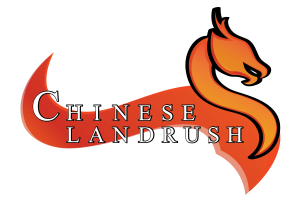Welcome back to the Chinese Domaining Masterclass blog series!
As we continue this series, we hope you’re enjoying learning about the nuances of numbers in Chinese culture, and utilizing the information from this series to help you invest in some great Chinese numeric domains!
Although our entire masterclass contains a wide variety of information- from the history of IDNs to how to spin great Chinese domains- for now we’ll continue on with our coverage of numerics.
Today’s topic: The number four.
4: 四, Pinyin: Sì
The number four in Chinese culture is widely known as being a number that carries a negative, superstitious, and relatively gloomy meaning. The number four didn’t quite have this negative cultural significance until later on in China’s history.
Let me explain why:
In Chinese culture, the pronunciation for “4” (sì) and “死” (sǐ, meaning “to die”) are very similar. This coincidence has led the Chinese culture (as it probably would in most any culture!) to become very superstitious about the number four, due to its similarity to death and dying.
To put things into perspective about the superstitious nature of the number four in Chinese culture, it can be compared to the number thirteen in the western world. Many superstitions and urban legends in the western world deem the number thirteen unlucky and negative. Much like the western world’s ghost stories and urban legends that promulgate haunted 13th floors, luck-lacking Friday the 13th’s, and horror movies depicting the 13th as a day of death, many buildings in the Chinese world don’t have a 4th floor for this very same reason.
Furthermore, when choosing a car plate or new phone number, most Chinese people try to avoid the number four since they feel that this number would bring them bad luck.
The most common sound-alikes for the number four are “death,” “to die,” and “a lifetime.” The pinyin spelling of the number four in Mandarin is “sì” and the Cantonese spelling is “sei.”
- The verb sound-alikes for the number four is: to think, to exhaust, to feed, to offer sacrifice, to appear, to watch, to wash (Cantonese)
- The noun sound-alikes for the number four is: silk, company, death
- The adjective sound-alikes for the number four is: personal, private
- The adverb sound-alikes for the number four is: yes, is
Like the last couple of articles, let’s go over three categories that domain investors should always keep in mind when researching and registering new Chinese domain names that deal with numerics: References, Puns, and Units of Innate Meaning.
References
Although the number four typically connotes negativity and death in the Chinese context, it’s not always so. Some references to the number four can be neutral, or even relatively positive.
For example, In the ancient Chinese mythos, there is a famous team known as “The 4 Heavenly Kings,” all of whom have unique capabilities, and are responsible for guarding the heavens. Because of this myth, people often like to use “4” to refer to the top four most powerful or capable people in an industry.
Also, during the Tang dynasty, Chinese people coined the phrase “The 4 Geniuses,” a famous saying that refers to the wisdom of four people who work, or live together. An example of this would be a group of four famous singers and movie stars from Hong Kong called “The 4 Heavenly Kings,” due to their outstanding performances in entertainment for the last 20 years.
Puns
1314: is pronounced “yi-san-yi-si,” which sounds like the old Chinese slogan “生世,” (yi-sheng-yi-shi) meaning “through life and death,” or “forever.”
48: is pronounced “si-ba.” This sounds very much like a phrase that most Chinese people would say possibly up to 50 times a day: “是吧,” (shi-ba) meaning “Right?” or “What do you say?”
Unit of Innate Meaning
We already discussed most of the number four’s meaning earlier, but we’ll go over it again for good measure. The innate meaning for the number four is generally negative and superstitious. It’s unlucky and relates to death, dying and the end of life. The Chinese culture likes to steer clear of things relating to the number four.
As it relates to investing in numeric domains and the number four, it’s pretty clear that it may not be a good idea to register domains that are meant to be used for happy, positive, and life-filled purposes. Doing so may come off rude, confusing, or downright scary in the Chinese context. Also in the Chinese domain investment industry, domains would not be that valuable when it contains a “4” at the left part of the dot. For example, the domain “2828.com” would most likely be sold at a higher price than the domain “4848.com,” as the latter sounds like “GoDieGoDie.com.”
If you have any further questions that relate to the number four, or any numeric for that matter, contact us and our team of experts, and we will do our best to help you answer any questions you may have. In the meantime, head over to ChineseLandrush.com and take a look at our list of hundreds of meaningful, premium-sounding, and readily available Chinese domain suggestions!
Also, if you have a portfolio of English names that you want translated properly into Chinese, let us know! We help domain investors translate English names into Chinese the right way (not the Google way), to get them going on their journey of IDN investing. Not to mention this service is completely free as well!
Stay tuned in the weeks ahead for more in-depth coverage of Chinese domain investing know-how!
